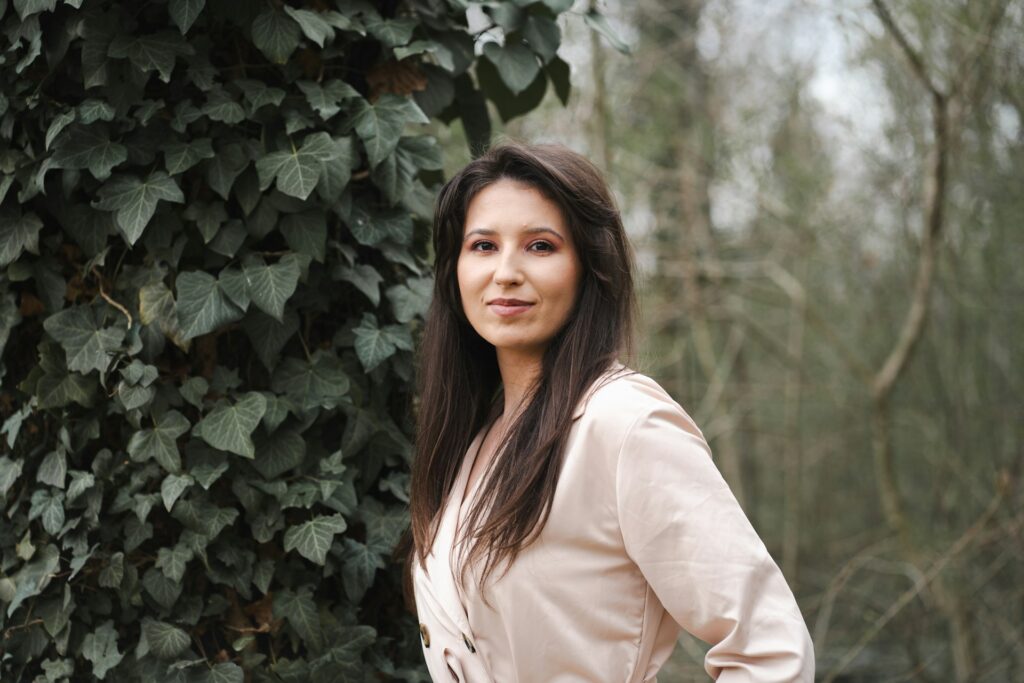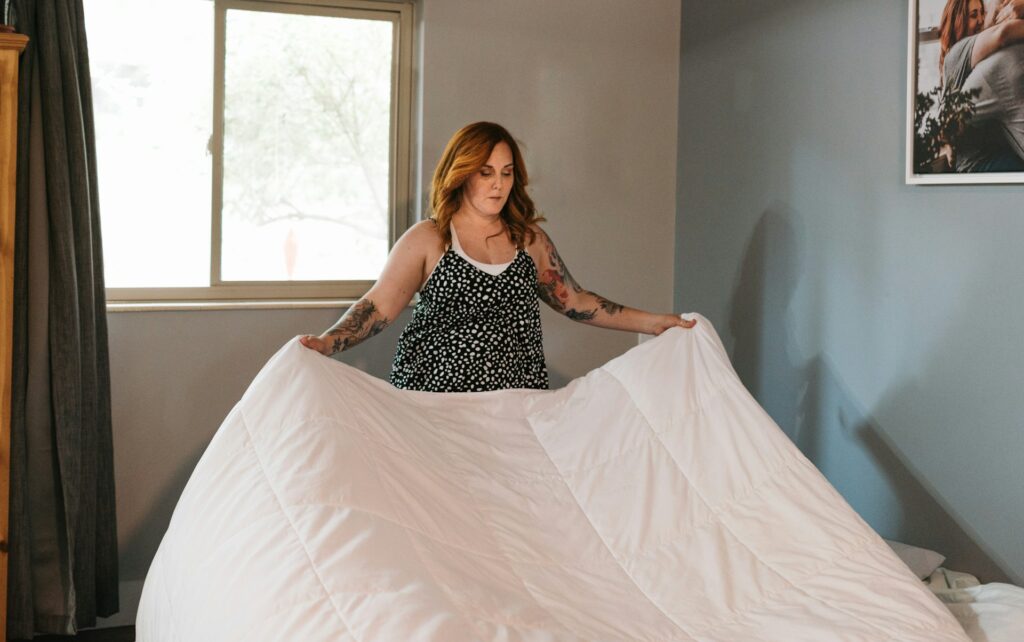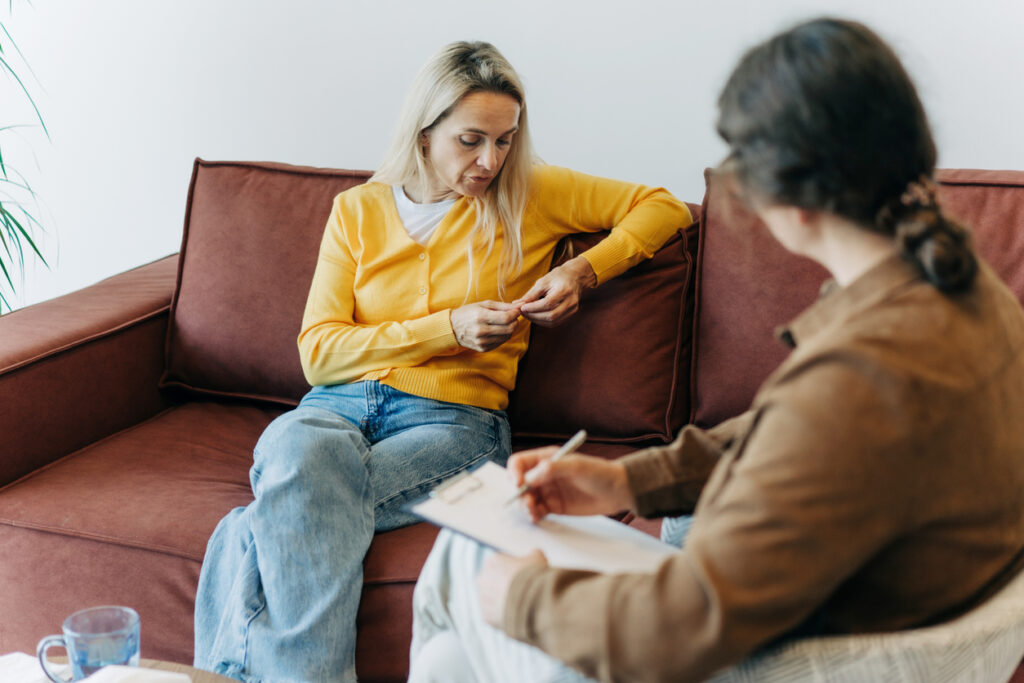Confidence doesn’t require you to be loud, flawless, or fearless.

In reality, it’s about building a steady belief in yourself, one small action at a time. When you learn how to support yourself through daily habits, that calm sense of self-assurance starts showing up in places you didn’t expect, and it feels genuine, not forced. If you want to experience this for yourself, here’s how to build your confidence in meaningful ways.
1. Do things before you feel fully ready.

Waiting to feel completely confident before you try something new is like waiting to get stronger before going to the gym. Confidence builds from action, not the other way around. The more you step into something slightly uncomfortable, the more your brain learns, “I can do this.” Even if it’s messy, you’re building proof that you can handle what comes up.
Trying before you feel ready isn’t reckless — it’s where growth starts. You don’t need perfect preparation, just the willingness to show up. That habit alone can change how you see yourself day to day.
2. Keep the promises you make to yourself.

Confidence often comes from consistency. When you follow through on something, even something small, it builds trust in yourself. Whether it’s getting out of bed when you said you would, making that phone call, or finishing the task you’ve been avoiding, every follow-through counts.
It’s less about how big the task is and more about showing your brain that you’re reliable. That sense of self-trust builds slowly, but it’s the foundation of real confidence — the kind that doesn’t waver depending on who’s watching.
3. Focus on effort, not outcome.

Confidence isn’t about always winning. It’s about being proud of the effort you put in, regardless of the result. When you start celebrating the fact that you tried, showed up, or gave it your best, you slowly detach from that pressure to be perfect.
That mindset takes the fear out of failure. You begin to realise that your value isn’t tied to constant success — it’s tied to your ability to keep showing up and learning. That change makes everything feel more doable.
4. Practice speaking up, even in small ways.

Confidence builds when you stop holding your voice back. That could mean sharing your opinion in a meeting, asking a question, or simply expressing a boundary. These small moments matter more than you think because they teach you that your thoughts have weight.
You don’t need to be loud or dominant, just honest. With every time you choose not to shrink, you remind yourself that your voice deserves space. That message, repeated daily, changes how you carry yourself.
5. Do things on your own sometimes.

Going solo can feel awkward at first, but it’s a great way to build self-assurance. Whether it’s running errands alone, grabbing a coffee by yourself, or even going to an event solo, these moments show you that you’re capable of creating your own experience.
You stop waiting for permission to enjoy things. Instead, you realise that your own company is enough, and that’s a huge confidence boost. It helps you walk into spaces with less dependence on external validation.
6. Challenge your self-talk.

If you’re constantly telling yourself you’re not good enough, your brain starts to believe it. The way you speak to yourself matters, especially when no one else is around. Catching those small moments of harshness and gently choosing a more balanced thought helps change your internal narrative as time goes on.
You don’t have to fake positivity. Just try replacing “I can’t do this” with “I’m still learning this.” These tweaks sound small, but they gradually rewrite your inner tone, and that voice is with you all day.
7. Get specific with compliments, and accept them.

Noticing the good in others helps you see it in yourself too. When you give specific compliments, and allow yourself to receive them, it opens up a more balanced view of who you are. Confidence isn’t built in a vacuum, and seeing yourself through kinder eyes can be part of that process.
Next time someone compliments you, resist the urge to brush it off. Say thank you, sit with it for a second, and let it land. That moment of receiving, without deflecting, is a quiet form of self-respect.
8. Let yourself learn in public.

Trying something new where people can see you struggle feels vulnerable, but it’s also one of the fastest ways to build real confidence. Whether it’s learning a language, working out at the gym, or starting a creative project, doing it in front of others takes courage. Howeverk it also shows you that mistakes aren’t fatal. You survive the awkwardness. More importantly, you prove to yourself that you’re brave enough to grow in real time, not just behind the scenes.
9. Move your body in ways that make you feel capable.

Confidence isn’t just mental — it’s physical too. Moving your body, whether through exercise, walking, dancing, or stretching, reminds you that you are strong and grounded in yourself. You start to carry yourself differently when your body feels alive and supported.
That doesn’t have to mean pushing yourself hard — just choosing movement that makes you feel energised and present. The more you feel at home in your own body, the more naturally confidence begins to grow from the inside out.
10. Clean something up, even just a corner.

Sometimes, confidence comes from having control over the little things. Clearing your desk, organising a drawer, or finally putting away that pile of laundry can give you an immediate sense of momentum. It’s a small act that tells your brain, “I’m in charge here.” These wins may not look impressive, but they do something powerful. They change your energy from stuck to active. And that little boost can ripple into other areas where confidence has been hiding.
11. Ask for help when you need it.

It takes more confidence to ask for help than to pretend you’ve got it all together. Reaching out isn’t weakness. It’s knowing your limits and respecting yourself enough to ask for support. When you ask for help, you’re choosing growth over pride.
That mindset helps you become more resilient, not more dependent. You realise that confidence includes knowing what you can’t do alone, and trusting that you’re still strong, even when you lean on someone else.
12. Reflect on what you’ve already overcome.

Confidence isn’t just about where you’re going — it’s rooted in where you’ve already been. Take time to remember the things you once thought you couldn’t handle, but did anyway. Looking back helps you connect the dots between who you were and who you’ve become.
That reminder is powerful. It shows you that you’ve already faced hard things and come out the other side. When you carry that knowledge into your daily life, it’s easier to trust yourself because you’ve got proof that you can keep going.


